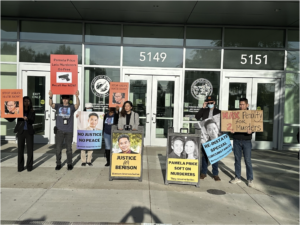
This week’s question comes from Hal in Berkeley, who asks: “I went to a personal injury lawyer because I was in an accident. My lawyer told me that he had opened a claim with the other side’s insurance carrier. I got medical treatment and when it was done he told me he made a demand for settlement. He then told me he had settled my case, but he never asked me if that amount was OK. Then he never gave me any of the money, saying that it all went to pay him and my medical bills. I asked him for my file and a breakdown of where the money went. Now he won’t answer my emails or calls. What are my rights?”
Hal, it always troubles me when a lawyer who works in my practice area casts a negative impression on our profession. I can say, with confidence, that this is the exception not the norm. Our profession is governed by a series of ethical standards that are contained within the Business and Professions Code that are designed to protect clients from unscrupulous lawyers.
A lawyer has an obligation to communicate with her or his client. Business and Professions Code Section 6068, “Duties of an Attorney,” generally sets forth an attorney’s obligations toward his or her client. Subsection (m) requires that it is the lawyer’s responsibility to “respond promptly to reasonable status inquiries of clients and to keep clients reasonably informed of significant developments in matters with regard to which the attorney has agreed to provide legal services.” Subsection (n) requires that a lawyer provide copies to the client of certain documents within a reasonable time.
Case law states that if a lawyer that fails, repeatedly, to provide status reports to her or his client, he or she may be subject to discipline ranging from a reprimand to disbarment.
Your lawyer can not unilaterally accept an offer of settlement on your behalf. Only a client can approve a settlement offer. If your lawyer accepted a settlement offer on your behalf, he may have violated Business and Professions Code Section 6106, as this is considered by the State Bar to constitute dishonesty and, in some circumstances, grounds for discipline up to and including disbarment.
Your lawyer’s refusal to provide you with an account of the funds, which he took on your behalf, constitutes another ethical violation. Rule 4-100 of the California Rules of Professional Conduct, “Preserving Identity of Funds and Property of a Client,” requires that a lawyer provide an accounting to his or her client and maintain such records for a period of no less than five years after final appropriate distribution of such funds.
A lawyer has to notify his or her client promptly upon receipt of any settlement funds and deposit any funds received on behalf of a client into a State Bar approved client trust account. Trust accounts must be carefully maintained, and a lawyer cannot “intermingle” funds — mix his funds with client funds. This means that the lawyer must keep client funds separate from her or his own funds and if the lawyer uses the funds as her or his own that is a serious violation of the ethical rules and is grounds for serious discipline, often disbarment.
I suggest you send the lawyer a certified letter, as well as a letter by FedEx, demanding that he immediately communicate with you about the status of your case, what settlement offers have been made, what monies have been collected, which, if any, of your medical bills have been paid, and where any money he collected is being held. If he does not respond, then you should contact the California State Bar and make a complaint.
By attorney Christopher B. Dolan, owner of the Dolan Law Firm. Email Chris questions and topics for future articles to help@dolanlawfirm.com










